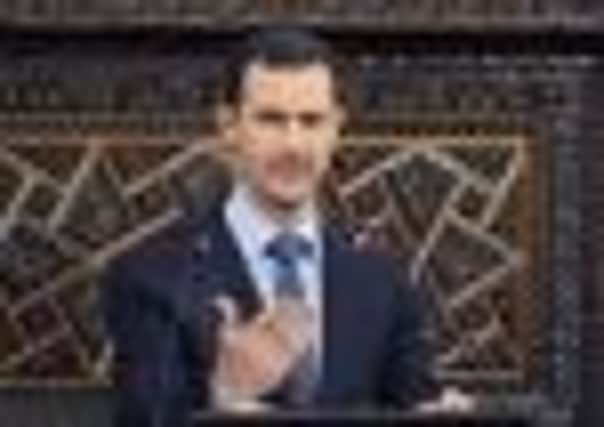Syria: Libyan veterans add steel to rebel army trying to oust Assad


Irish-Libyan fighter Hussam “Sam” Najjar, whose mother was Irish, was part of the rebel unit that stormed Col Muammar al-Gaddafi’s compound in Tripoli a year ago, led by Mahdi al-Harati, a militia chief from Libya’s western mountains.
According to Mr Najjar, a trained sniper raised in Dublin, Mr Harati now leads a squad in Syria, which includes 20 senior members of his Libyan unit. They include specialists in communications, logistics, humanitarian issues and heavy weapons who operate training bases, teaching fitness and battlefield tactics.
Advertisement
Hide AdAdvertisement
Hide AdMr Najjar was invited to join them a few months ago but was surprised to find how poorly armed and disorganised the Syrian rebels were, describing Syria’s Sunni Muslim majority as far more oppressed under Mr Assad than Libyans were under Gaddafi.
“I was shocked. There is nothing you are told that can prepare you for what you see. The state of the Sunni Muslims there – their state of mind, their fate – all of those things have been slowly corroded over time by the regime.”
“I nearly cried for them when I saw the weapons. The guns are absolutely useless. We are being sold leftovers from the Iraqi war, leftovers from this and that,” he said. “Luckily these are things that we can do for them: we know how to fix weapons, how to maintain them, find problems and fix them.”
In the months since he arrived, the rebel arsenal had become “five times more powerful”, he said. Fighters had obtained large calibre anti-aircraft guns and sniper rifles.
Disorganisation is a serious problem. Unlike the Libyan fighters who, protected by a Nato no-fly zone, were able to set up full-scale training camps, the rebels in Syria are never out of reach of Mr Assad’s air power.
“In Libya, with the no-fly zone, we were able to build up say 1,400 to 1,500 men in one place and have platoons and brigades. Here we have men scattered here, there and everywhere.”
Although many rebel units fight under the banner of the Free Syrian Army, their commands are localised and poorly co-ordinated, Mr Najjar said.
“One of the biggest factors delaying the revolution is the lack of unity among the rebels,” he said. “Unfortunately, it is only when their back is up against the wall that they start to realise they should [unite].”
Advertisement
Hide AdAdvertisement
Hide AdThe presence of foreign fighters is a sensitive issue. Mr Assad’s regime has taken to referring to the rebels as “Gulf-Turkish forces”, accusing the Sunni-led Arab Gulf states and Turkey of arming, funding and leading them.
Mr Harati’s unit is known as the Umma Brigade, referring to the global community of Muslims. Mr Najjar said thousands more Arab Sunni fighters were eager to join the cause.
Mr Harati is reluctant to enlist them because he does not want his cause tarnished by the perception that foreign Islamists are linked to al-Qaeda, “
But Mr Najjar warned: “If the West and other countries do not move fast it will no longer be just guys like me – normal everyday guys that might do anything from have a cigarette to go out on the town – it will be the real extreme guys who will take it to another level.”